

There will be no paper next week, July 5. The next Jewish Press will be published on July 12.


Treasure




There will be no paper next week, July 5. The next Jewish Press will be published on July 12.


Treasure

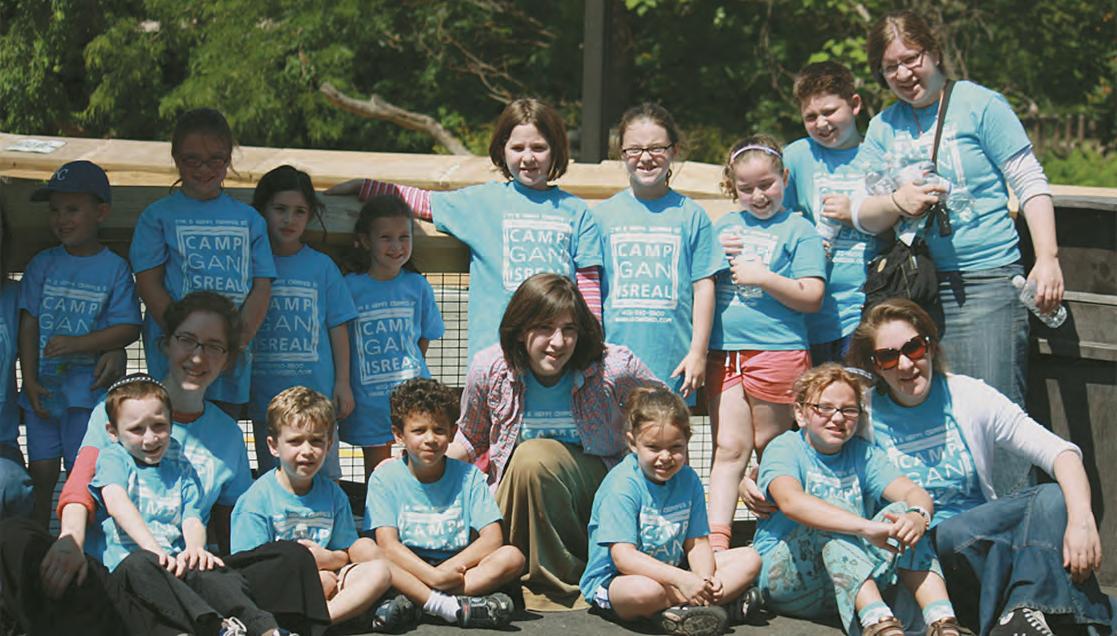
MUSHKA TENENBAUM
Chabad of Nebraska
After COVID19 hiatus, Camp Gan Israel (CGI) is making a much-anticipated return to Omaha.
Camp Gan Israel is the largest and fastest growing network of Jewish day camps in the world.
AMANDA CRAIG
UNO Office of Strategic Marketing and Communications
Roni Reiter-Palmon, Ph.D., is a psychology professor at the University of Nebraska at Omaha (UNO) and serves as the director of UNO’s Industrial/Organizational Psychology graduate program. She has also done a great deal of psychology research that focuses on creativity and team decision-making.
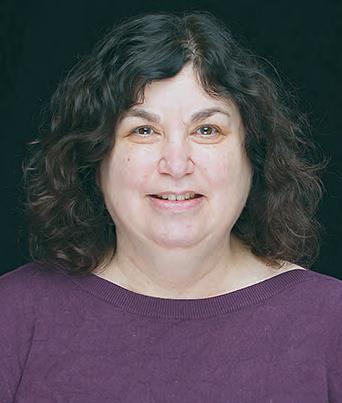
Roni Reiter Palmon
Her accomplishments in this field of research have earned the respect of her colleagues in the American Psychological Association (APA), and they awarded her with a lifetime achievement award, the Rudolf Arnheim Award for Outstanding Achievement in Psychology and Creativity.
Reiter-Palmon feels truly honored to be recognized by her peers in the national organization.
“It means that my peers believe that the work that I’m doing is important, is meaningful, and contributes to the field. Which as a researcher is amazing, definitely.”
See Roni Reiter-Palmon page 3
CGI enjoys a well-earned reputation as a trendsetter with innovative ideas and creative programs, forming a safe, Jewish environment where campers make memories to last a lifetime. Gan Israel campers are imbued with a deep sense of pride in their Jewish heritage and a love for the land of
See Camp Gan Israel page 2
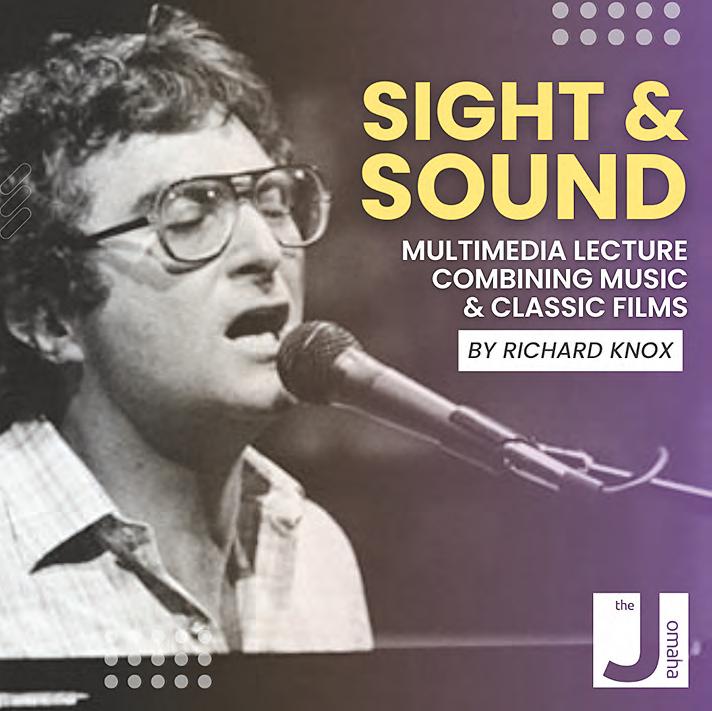
Join us at the JCC for Sight & Sound: A multimedia lecture combining music and classic films, led by Richard Knox on July 11 at 7 p.m.
This will be the third lecture on performing arts given by Knox at the J and will feature discussion on
the major musical contributions of many Jewish composers and directors to film; an important component in the history of Hollywood motion pictures that has often been under-appreciated or ignored.
“Having motion pictures be accompanied by music has been a tradition
See Sight & Sound page 2

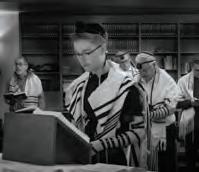
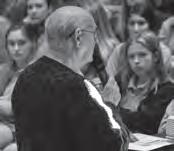
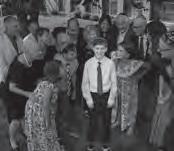



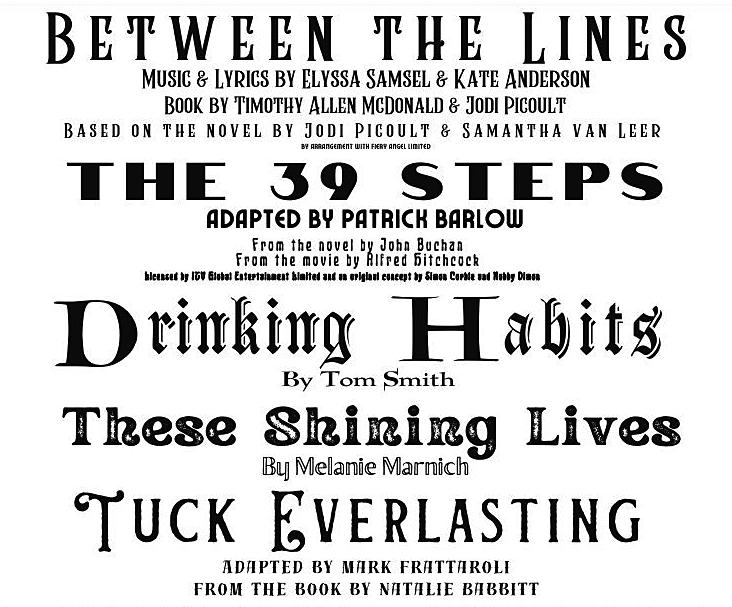
Continued from page 1
Israel. Judaic themes are taught through exciting activities, stories, songs, and games, which are part of the unique CGI experience.
Scheduled from July 812, the camp promises an action-packed week filled with engaging activities, all designed to instill a sense of Jewish pride and joy among the campers.
The camp will offer a diverse array of experiences, ensuring that each day is as exciting and enriching as the last. One of the highlights this year is the farmto-table cooking and baking experiences.
Campers will have the unique opportunity to learn about sustainable food practices, from growing ingredients to preparing delicious meals. These hands-on activities aim to teach children the value of healthy eating and the joys of cooking, while also connecting them to their heritage through traditional Jewish recipes.
tunity for the entire community to come together and celebrate. The carnival will feature a variety of games, rides, and attractions, ensuring fun for all ages.

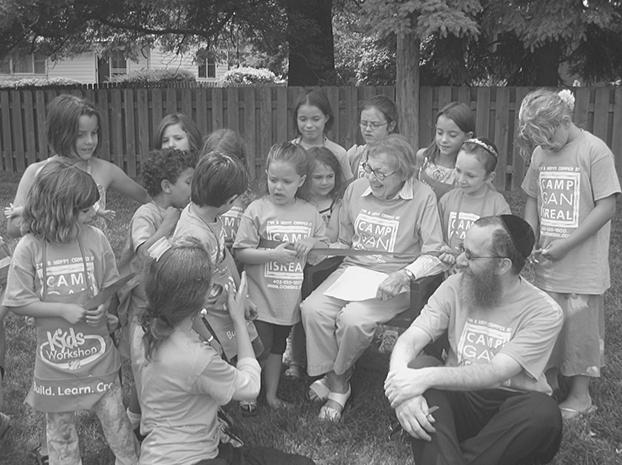
To beat the summer heat, CGI will feature a variety of water activities. Whether it’s swimming, water games, or simply splashing around, these activities are designed to keep the campers cool and entertained. The emphasis on physical activity ensures that the children remain active and engaged throughout the week, promoting both physical health and social interaction.
In addition to the on-site activities, the camp will include several trips to local attractions. These excursions are not only a fun break from the regular camp schedule but also provide educational experiences and opportunities for the campers to explore their surroundings in a supervised and safe environment.
The grand finale of the week will be a community bake sale and carnival, set for July 12 at the Chabad. This event is open to everyone, not just the campers, making it a perfect oppor-
The proceeds from the bake sale and carnival will be donated to a charity selected by the campers themselves, teaching them the importance of giving back and supporting those in need. This charitable component underscores the camp’s mission of fostering a sense of responsibility and empathy in the campers. Registration for Camp Gan Israel is now open, and interested families can sign up at OChabad.com/ Camp. For more information about the community bake sale and carnival, visit OChabad.com/carnival CGI’s return to Omaha is more than just a week of fun; it’s an opportunity for children to grow, learn, and connect with their Jewish heritage. The camp’s activities are designed to be both educational and entertaining, ensuring that each camper leaves with lasting memories and a deeper appreciation for their culture. The support of the community and the involvement of the campers in charitable activities further enrich this experience, making Camp Gan Israel a cherished event for all involved.
Don’t miss out on this incredible opportunity to be part of a week filled with joy, learning, and community spirit. Register today and join us for a summer experience like no other.
This summer marks 20 years since Isa Wright first attended Camp Gan Israel and joined the family. Shevi Paley has never left the country. Shevi’s father is originally from Omaha, her last time here was when she was five years old, it is fun to welcome her back! Nechama Kapilevich attends a school with 15 students total and is a seasoned CGI camper and staff member.
MURPHY SCOTT WULFGAR
Every year, it seems decisions made by the Supreme Court become more consequential and controversial, dealing with politically charged issues in a country where divisions only continue to swell. This term is no exception. Reproductive rights. Rights of the unhoused. Presidential criminal liability. Social Media moderation. Deference to administrative agencies. Even the personal (and perceived political) actions of several justices have become fodder for headlines.
With so many issues to follow and so much information to keep track of, ADL’s Annual Supreme Court Review is a touchstone for cutting through the din and focusing on the substance with scholars and experts who know what they are talking about.

On Tuesday, July 9 from 11 a.m.-12:30 p.m., B’nai Israel Living History Synagogue in Council Bluffs, having recently become the area’s first ADL Signature Synagogue, will host
Continued from page 1 in Hollywood that goes back to the silent film era when pianos and organs were commonplace in theaters,” shares Knox.
“Movie directors, working closely with composers, have continually attempted to enhance the audience involvement and enjoyment of their films by adding musical scores and specific motifs which help us identify with particular characters or add an atmospheric tone to certain scenes. With the passage of time, many of these film scores have become iconic. Who can imagine, for example, Gone With The Wind without Max Steiner’s Tara’s Theme, Elmer Bernstein’s haunting score in To Kill a Mockingbird, or the conclusion of The Natural without
this year’s ADL Supreme Court Review. This live streaming event features distinguished legal scholars and Supreme Court analysts Erwin Chemerinsky, Miguel Estrada, Dr. Mary Anne Franks, Gregory G. Garre and Frederick Lawrence for a conversation moderated by journalist Amy Howe on the important cases of the term. They will also discuss what to expect at the Supreme Court next year.
In the wake of the tragic events of Oct. 7, Dahlia Lithwick will provide video remarks on behalf of ADL about the related sexual assaults and potential legal remedies.
So many of this year’s decisions have the potential to profoundly impact our day-to-day lives. Don’t miss this opportunity to contextualize what has been decided and prepare for what is at stake in the wildly contentious elections ahead. Join the free BYO lunch and in-person watch party at B’nai Israel. For more information or to RSVP, visit: www.cblhs.org/events
Randy Newman’s uplifting music.”
This program will examine how great directors such as Steven Spielberg, Alfred Hitchcock, David Lean, and William Wyler teamed with outstanding music composers such as John Williams, Bernard Herrmann, Maurice Jarre, and Dmitri Tiomkin to make filmgoers laugh and cry or add the elements of fear or suspense while creating some of the most memorable motion pictures in the history of Hollywood. This all-age show is open to the public and is sure to be of great interest to film and music enthusiasts of all ages! Members $10/ Non-Members $12. Register online through Daxko or by calling 402.334.6426.
Continued from page 1
When discussing her research, she is particularly excited about studying the thought processes that lead to creative ideas and solutions. She shared that while much of the research you will find in this area discusses generating ideas and brainstorming, she is much more interested in what happens before that and after ideas are generated.
Reiter-Palmon explained, “So, how do people identify a problem to solve? How do they evaluate ideas and choose the one that they think is the right solution or the creative solution?”
She also studies creativity within a team, and how each person’s different thought processes are brought together to make a collaborative decision. Organizations can use this research to better develop workplaces that foster creative thinking in their teams.
Looking ahead to new developments in the field, she said, “AI (artificial intelligence) is changing the game. I’m interested, for example, in how people perceive AI in relation to creativity. I think sometimes people expect AI to be able to develop these creative ideas, and it just can’t, given the way it’s programmed.”
While Reiter-Palmon is proud of her body of work and excited for new work around the corner, she emphasized that she did not get to this point alone. She encouraged those interested in pursuing a similar career to realize that she has had mentors, colleagues, and students who she learned from and worked with.
“Collaborations make it more interesting and more meaningful, but also allow you to test your approaches and have people to consult when you reach a bump in the road,” she said. She advised that it is equally important for students and new researchers to listen to their gut and pursue the things that interest them.
“Think of what you’re passionate about and what you care about. When I started doing research in the creativity domain, there were people who I respected that said, ‘You shouldn’t be studying this.’ And I just didn’t listen to them. I did what I thought was right. Well, fast-forward a few years, and organizations do care about creativity and innovation. It’s that balance of listening to other people because they do have good feedback to give you, but also listening to yourself.”
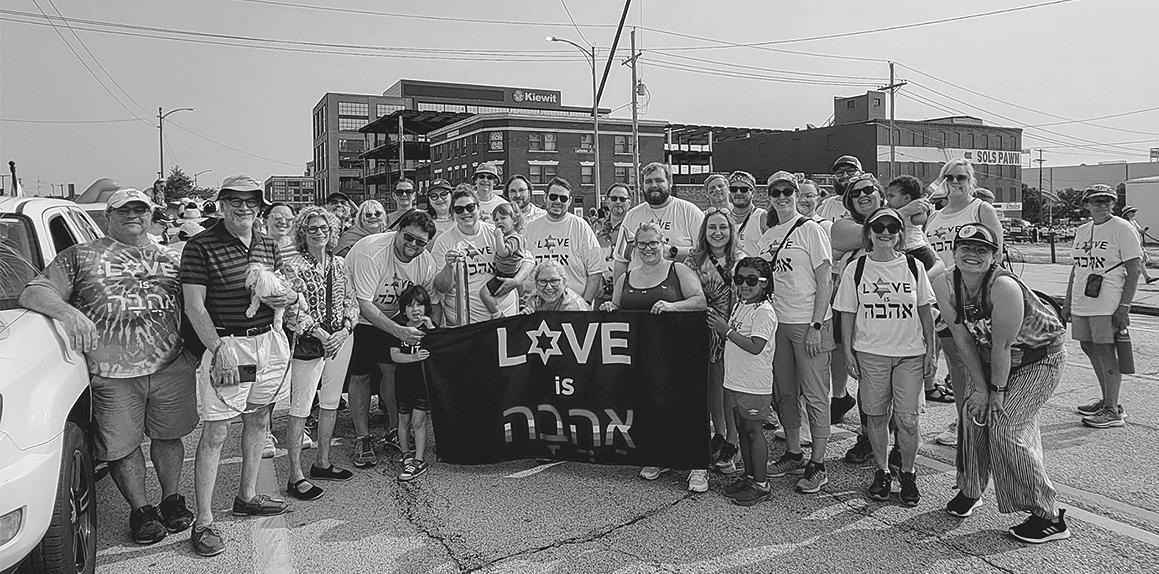
PAM MONSKY
JCRC Assistant Director
Bring your friends and family and join the Jewish Federation of Omaha, JCRC, the JFO DEIA Committee, Beth El Synagogue, B’nai Israel and Temple Israel as we celebrate Heartland Pride as a Jewish community on Saturday, July 13! Temple Israel Pride chairperson Robert Friedman noted, “This event is a beautiful partnership between local Jewish organizations and the synagogues! We invite everyone to come out and show their pride!”
The schedule is as follows:
FRIDAY, JULY 12
6 p.m.: Pride Shabbat and Oneg at Temple Israel.
SATURDAY, JULY 13
8 a.m.: Rise and Pride Shabbat service at the Brandeis Building. Breakfast provided by Beth El Synagogue.
9 a.m.: Walk or drive to the designated parade position (we will receive our spot number about a week before the parade).
9:30 a.m.: Line up 10 a.m.: Parade begins


10:30 a.m.-ish: Parade ends Make sure to bring sunscreen, hats and other heat repelling items.
To join the Jewish Omaha Pride contingent, please sign up by contacting Pam Monsky, pmonsky@jewishom aha.org, 402.334.6572. Temple is taking reservations at https://www. temple israelomaha.com/form/pride2024.html. All registered participants will receive an invitation to a De-escalation and Safety Training meeting one week before the Heartland Pride Parade.
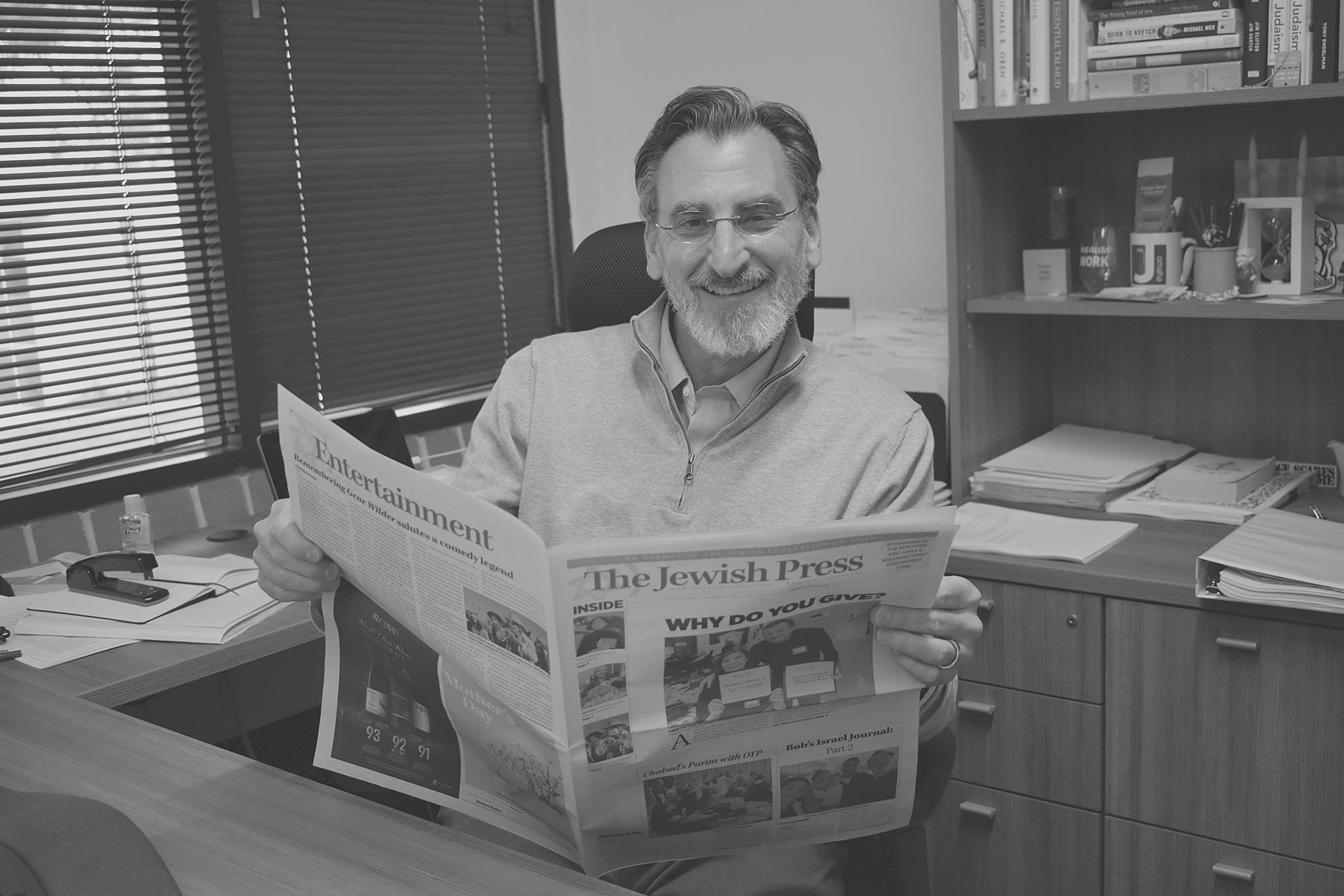
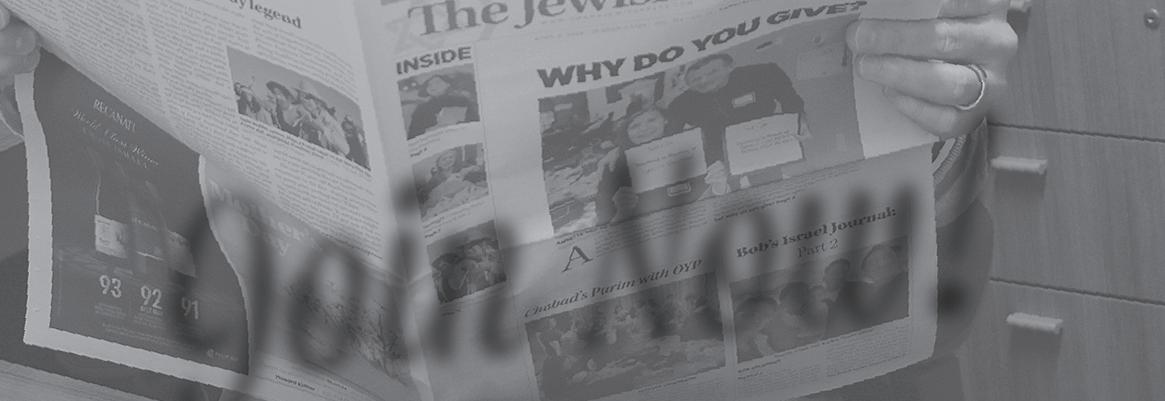


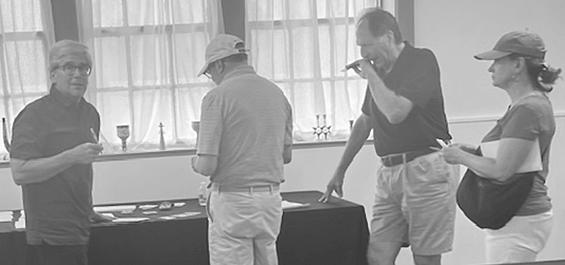
HOWARD KUTLER
On June 9th, B’nai Israel Synagogue held a special event to highlight Jewish owned businesses and historical sites in Council Bluffs. Groups of riders in cars and people walked to experience the five sites.
There were three businesses owned by Jewish families that were on the tour. Council Bluffs Auto Parts that was owned by Dave Fox who was the grandfather of Janie Kulakofsky, her brothers Jonathan and Dan, and cousins Robert and Barbara Fox. Dave’s sons Jack and Harold worked with their father in the business until it closed in 1987. Iowa Clothes which was owned by Harry Cohen the grandfather of Patty Nogg and her siblings Judy and Richard. Iowa Clothes Shop was open until 1993. And Katelman Hardware owned by Louis and Rose Katelman. Their daughter Harriet nicknamed Sissy worked in the business until it closed in 1981.
The Union Pacific Railroad Museum was on the historical tour because of the importance the railroad played in the history of many Jewish immigrants who rode on the trains to bring them to their new home in Council Bluffs. The Squirrel Cage Jail Museum was a fun stop for everyone to see. The jail design was one of 18 built in the country and was intended to be escape proof. The jailer turned a crank moving the jail


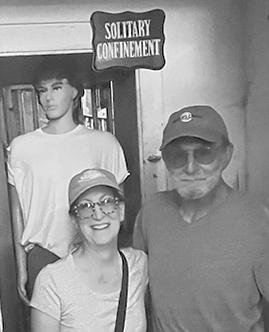
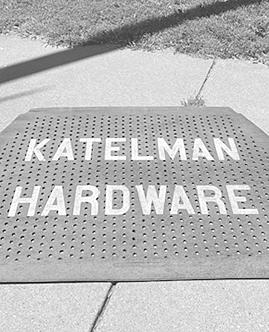
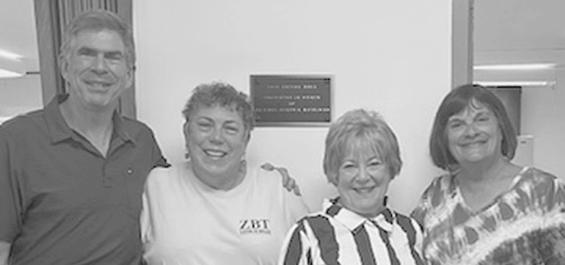
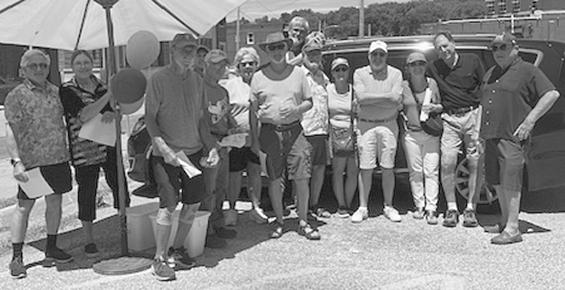
cells to him when deciding to open the door for release of the inmate.
At the five stops there were volunteers from the Brigit Saint Brigit Theatre Company dealing one card for a game of draw poker. Once everyone finished the tour and returned to B’nai Israel Synagogue the pit boss tallied the 10 best hands of poker.
The 10 winners selected which Omaha Jewish organization to donate their $600 prize. Our sincere thanks to the generosity of the donors and the Federation Foundation who contributed to our event for the cause of benefiting our Omaha and Council Bluffs Jewish community.

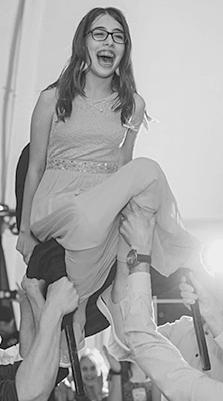

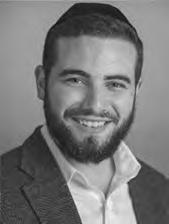
Ten-year-old Andy asked his father, “What is the number of abandoned children in Harlem?” His father was glad to see Andy taking an interest in social problems. So he responded with a long-winded discussion and concluded with the statistics. Andy then asked the same question about New York City, the United States, Europe, and the world. Dr. Haim Ginott (in his book Between Parent and Child) points out that Andy was uninterested in the social issue. He, like most children, was afraid of abandonment.
In this week's Parsha, the Jewish people are about to enter the land of Israel. We send spies, and the spies come back with a negative report. The spies heavily imply that there is no hope for us in this land. And the Jewish people immediately believed this report and despaired. Did we so quickly forget all the miracles G-d performed to take us out of Egypt?
If G-d provided for us in our desert travels, he could certainly provide for us in Israel! In truth, in the land of Israel, we would no longer have miracles. We would have to eat by the sweat of our brow. But this was an opportunity for us to spread our wings. Like a good parent, G-d was giving us the opportunity for independence. We knew that G-d could provide, but we were afraid that He would instead abandon us. We did not believe ourselves worthy of love, and so we assumed He did not love us. In order for us to trust in G-d, our spouse, or anyone at all, we must first trust ourselves. When I understand that I am worthy of love, I will realize just how loved I am.
Shabbat shalom.
The award-winning B’NAI B’RITH BREADBREAKERS speaker program currently meets Wednesdays via Zoom from noon to 1 p.m. Please watch our email for specific information concerning its thought-provoking, informative list of speakers. To be placed on the email list, contact Breadbreakers chair at gary.javitch@gmail.com
If you do business with any of our advertisers, please tell them you saw their ad in the Jewish Press. It really helps us!


RACHEL RING
JFO Director of Development
Hey, Ben Gurion Society members and Next Gen members (if you’re under 45 years old, that’s you!), join us for Sips, Bites and Wild Sights – Late Night at the Zoo! Thursday, July 11 from 7 to 10:30 p.m. We’ll meet outside the front gates at 7 p.m.
Have dinner from a food truck, get a drink, visit with friends and enjoy the amazing Henry Doorly Zoo, the pride of Omaha. See you there!
The Ben Gurion Society chairs are Abby and Adam Kutler and the NextGen chairs are Hailey Kruger and Alex Ronan.

For the first time in more than three decades, an NHL team will have a Jewish coach.
On June 13, Ryan Warsofsky was named head coach of the San Jose Sharks after previously serving as an assistant coach with the team. At 36, he is also the youngest coach in the 32team league and faces a key decision early in his tenure: The Sharks, who had the worst record in the NHL last season, have the top pick in next week’s NHL draft.
“This is an exciting time for myself, my family and the Sharks organization to move forward,” Warsofsky said in an emotional introductory press conference Monday afternoon.
Warsofsky’s promotion adds onto the growing Jewish presence in the league, whose postseason is crescendoing to a close this week as the Edmonton Oilers face the Florida Panthers in the Stanley Cup Finals. There were at least 15 Jewish players on the ice this season — from the Oilers’ winger Zach Hyman to brothers Jack, Luke and Quinn Hughes to the Sharks’ own center, Luke Kunin.
tional Ice Hockey Federation World Championship, where the U.S. team finished fourth.
The last time the league saw a Jewish coach was during the 1992-1993 season, when NHL veteran Bob Plager served as head coach of the St. Louis Blues for all of 11 games, according to the Jewish Baseball Museum (which tracks notable Jewish moments in other sports as well).
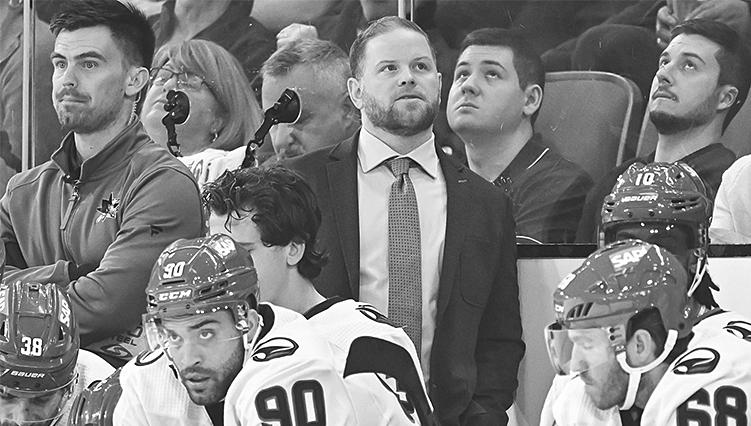
Warsofsky is a native of Marshfield, Mass. His brother David, who played parts of five seasons in the NHL, told the Canadian Jewish News’ “Menschwarmers” podcast that their father is Jewish and that growing up, his family celebrated Hanukkah with their grandparents.
Warsofsky played one professional season in 2011-2012, split between a number of lower-level leagues in the U.S. and the Netherlands. He began his coaching career the following year as an assistant at his alma mater, Division III Curry College in Milton, Mass. From there, he spent five seasons, including two as a head coach, with minor league teams before moving up to the American Hockey League, where he led two different teams over four seasons and won two championships.
He joined the Sharks as an assistant coach in 2022. Last year, he served as an assistant coach for Team USA in the Interna-
Before Plager, the most notable Jewish NHL coach was Cecil Hart, who led the Montreal Canadiens for nine seasons in the 1920s and 1930s and won back-to-back Stanley Cup titles in 1930 and 1931. The NHL’s Hart Memorial Trophy, given annually to the league’s most valuable player, was donated by Hart’s father David. Hart is also a member of the International Jewish Sports Hall of Fame.
But soon, Warsofsky may be joined by another Jewish head coach. To get the Sharks job, he beat out Jeff Halpern, an assistant coach for the Tampa Bay Lightning since 2018 who has been linked to multiple head coaching vacancies in recent years, including the Sharks’. Halpern played 14 seasons in the NHL and is a member of the Greater Washington Jewish Sports Hall of Fame.
Israeli Prime Minister
Benjamin Netanyahu has disbanded the small war cabinet he established at the outbreak of the IsraelHamas war, reverting to Israel’s pre-Oct. 7 governing system.
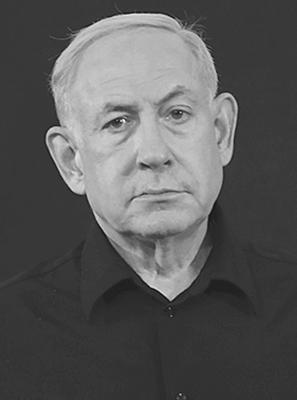
Netanyahu established the war cabinet days after Hamas’ invasion of Israel when former Defense Minister Benny Gantz, a centrist rival, joined an emergency wartime government. The war cabinet had three voting members — Netanyahu, Gantz and Defense Minister Yoav Gallant — along with observers, and was tasked with making key decisions about Israel’s military campaign in Gaza along with its battles on other borders.
Gantz’s party left the coalition last week, and he stepped down from the war cabinet, amid disagreements with Netanyahu about plans for Gaza after the war.
The exit of Gantz’s party means that the government has returned to its shape before the war — consisting of a mix of right-wing and religious parties, including hardline ministers. Some of those figures, such as far-right National Security Minister Itamar Ben-Gvir, have pressed to join the war cabinet following Gantz’s resignation.
Now, instead of the war cabinet, the fighting will be overseen by Netanyahu and Gallant along with the security cabinet, a small group of ministers that has traditionally made decisions about Israeli military policy. The change comes as U.S. envoy Amos Hochstein is in Israel to try to tamp down clashes between Israel and Hezbollah, the Lebanese terror group.
Ben-Gvir and another far-right minister, Bezalel Smotrich, are members of that group. Both are demanding an unfettered extension of the war, against popular opinion which prefers a ceasefire deal that would return Israeli hostages, and have called for Israel to establish settlements in Gaza, which Netanyahu has thus far rejected.


















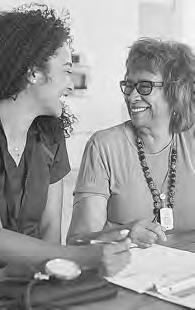



TOBY AXELROD
BERLIN
On the day they filmed at Auschwitz, Lena Dunham and Stephen Fry weren’t allowed to say anything to each other except their scripted lines.
Fry had come down with Covid, and Julia Von Heinz, their director in Treasure, had only barely eked out permission from the memorial to film outside the Nazi concentration camp’s gates. Changing the dates, she was told, was impossible.
So the show went on, but with strict rules about conversation aimed at preventing Fry from infecting Dunham and further derailing production.
It was, Dunham said, excruciatingly difficult. The co-stars usually talked “from the minute we got in the hair and makeup chair in the morning until the minute that we got to our cars at night,” she recalled during an appearance at the Berlin film festival where Treasure premiered in February.
“I kept having to remind myself, because I wanted to connect with him on what we were seeing,” she added. “But Julia so wisely understood that his character was isolated in that feeling. And my character didn’t understand that feeling.”
The illness-induced separation between the onscreen odd couple — Dunham, the American actor, writer and producer known for giving voice to the angst of millennials, and Fry, a charming yet staid Brit nearly twice her age — mimicked the emotional gap between their characters, a father and daughter who take a roots trip to Poland in 1990, just after the fall of the Iron Curtain.
cannot hear it any longer. Does there really have to be another film about this subject?’”
The answer is that “there can never be enough stories to be told about this. And I think we are giving it a new perspective.”
For both Dunham and Fry, the story had personal resonance. Each of them has a Jewish mother and grew up with family stories of the Holocaust.
The film is “not just about a massive, massive, massive act of violence, but the generational, intergenerational conse-
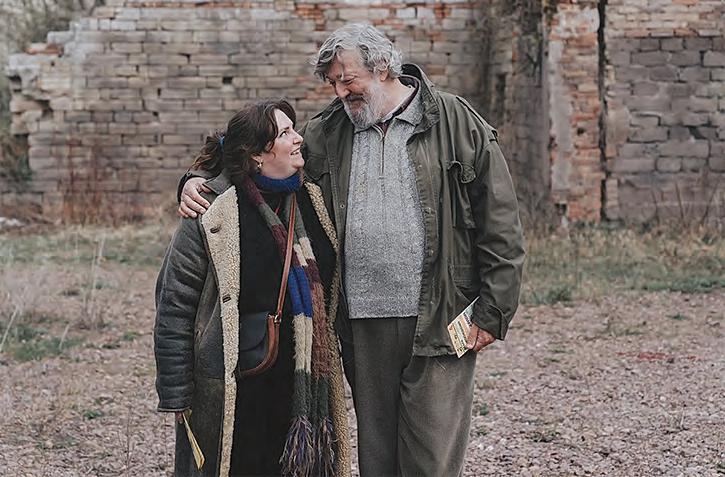
quences of that,” Dunham said at the Berlin press conference.
Based on the 2000 novel Too Many Men by Australian writer Lilly Brett, the film tells the story of New York journalist Ruth Rothwax (Dunham) and her Holocaust survivor father, Edek (Fry) as they visit the city of his birth — Łódz — and the Auschwitz-Birkenau concentration camp, which he survived. Their trip, which follows the death of Edek’s wife and Ruth’s mother, is both a passage into a world of memories and a test of each other’s boundaries.
The story of Treasure will be familiar to many Ashkenazi Jews who have either made such journeys, delved into genealogical research, or seen the 2005 movie Everything is Illuminated – based on Jonathan Safran Foer’s surreal, eponymous 2002 road-trip novel about the search for Jewish roots in Ukraine.
But unlike that story, which also unwinds along bumpy, post-Soviet roads, Treasure does not dip into magical realism, despite pulling some major tricks — including getting a British actor to speak a Polish-accented American English (“It was a challenge, but it was an enchanting one,” Fry said), using decrepit locations in contemporary Germany to convey the grim architecture of 1990s Poland, and employing special effects to film some Auschwitz scenes (because filming inside the camp boundaries is not allowed).
Rather, von Heinz conveys realistic father-daughter tensions, painting a believable portrait of the survivor who has learned to go with the flow, and the neurotic “second-generation” daughter who eats as if she were just liberated herself, who is obsessed with antisemitism, and sees the past in the present everywhere she tosses and turns.
And von Heinz does it with humor – something she hardly dared try at first.
Normally, “Germans wouldn’t dare to mix humor into that. We just wouldn’t dare it. Rightly so,” said von Heinz, who has one Jewish grandfather. Speaking at a press conference after the Berlin premiere, she said she fell in love with Brett’s novel and when casting the movie “just felt I needed two actors who made me laugh.”
Her film is a study in contradictions: The elderly survivor Rothwax is full of vim and vigor, while his anxious daughter avoids intimacy. Edek has an affair at their hotel and asks buttoned-up Ruth when she last had sex; Edek proudly tells others that she is a famous journalist while she rolls her eyes; he enjoys the local foods while she avoids them, instead snacking compulsively when no one is watching. Slowly, osmosis occurs: Ruth has her own (albeit safe) flirtation, and Edek finally breaks out of his happy-go-lucky safe space, taking his daughter to find a “treasure” hidden on property his family once owned.
The film was completed in early 2024, according to von Heinz, who said that after Hamas attacked Israel on Oct. 7, killing about 1,200 people in what was the deadliest day for Jews since the Holocaust, the team decided they needed to get it done in time for the Berlin festival.
“We feel it’s the very moment for this film,” she said after the premiere there. In part, it is an answer to “people who say ‘We
“And I think that it’s important to acknowledge that it’s very, very much about the history of antisemitism and the history of the Jewish experience.
“But it’s also a story about how a legacy of violence affects anybody. There are so many groups who carry trauma in this way,” said Dunham, who learned details about her family members’ Holocaust survival on a recent episode of PBS’ Finding Your Roots. “And hopefully an examination of trauma like this, looking backwards, can help us think about the legacy that we create moving forward.”
Fry’s visit to Auschwitz was his first.
“Knowing that I had family who had perished in that place was a very extraordinary feeling,” he said. “The generation of survivors that I knew wanted me to grow up in a free society, free of antisemitism, free of that legacy. They thought the victory over the Holocaust, the victory over hatred, would be to be almost unaware of it.”
“They didn’t want the children to be burdened with the knowledge of what happened,” said Fry, who also probed his family’s story in his 2012 film Wagner and Me.
“But, of course, as time has passed, the message is slightly different: It’s that it’s too important to keep it alive and to remember,” added Fry, who spoke out against antisemitism in his annual Christmas video in December. “Because while history may not repeat itself, as somebody once put it, it rhymes. And there are similar feelings now, as we know, rising up.”
Dunham told JTA she prepared for her role by talking with author Lilly Brett. “It’s no secret that this is an autobiographical novel,” the actress said. “She very generously spent time with me on Zoom and shared aspects of her life that weren’t in the book. I just wanted to know things like, what was it like to grow up in your house? How did you relate to your mother? What made you crazy about your parents?”
She said the result was a movie that might be more relatable than had it only dwelled on trauma and conflict.
“What I love about this film is, yes, it’s about the absolute horrors of the Holocaust and things that we can never, ever forget,” Dunham said. “And it’s also about the kind of mundane and universal love inside of families.”
“The idea that you have a neurotic, modern American girl as the daughter who is fussing about her diet is such an important window into the difference between their experience and what they think of life, what they get out of life,” Fry told JTA. “It’s just a privilege to be inside a world that is so acutely realized, in which humor and sorrow are so closely next to each other, they leak into each other all the time.”
Dunham — producer and star of the hit HBO comedy series Girls — said she “was surprised that Julia thought of me for the movie” because it was a departure from her typical roles. She added, “Even if I now just go from that to playing total goofballs, it’s something I will cherish for the rest of my life.”


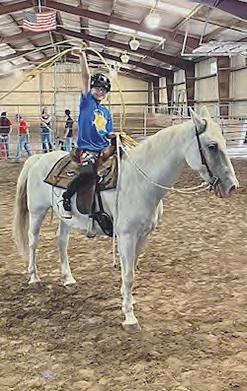
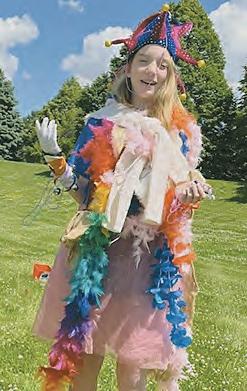
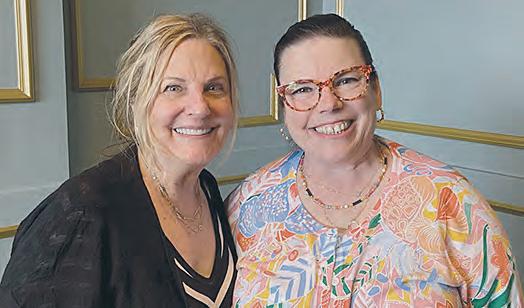

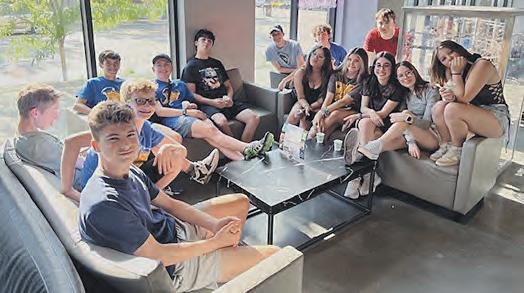

PHOTOS FROM RECENT JEWISH COMMUNITY EVENTS
SUBMIT A PHOTO: Have a photo of a recent Jewish Community event you would like to submit? Email the image and a suggested caption to: avandekamp@jewishomaha.org


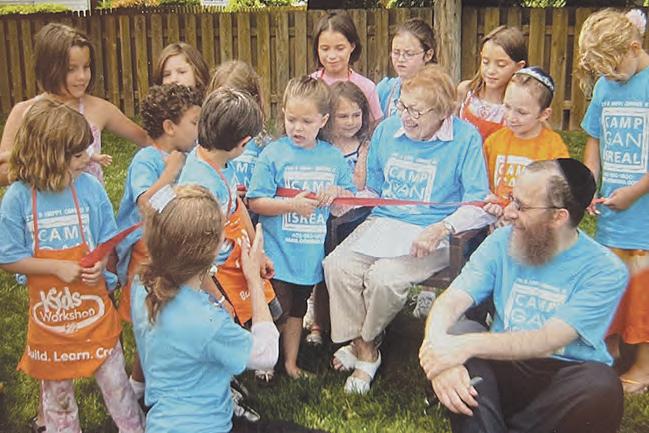
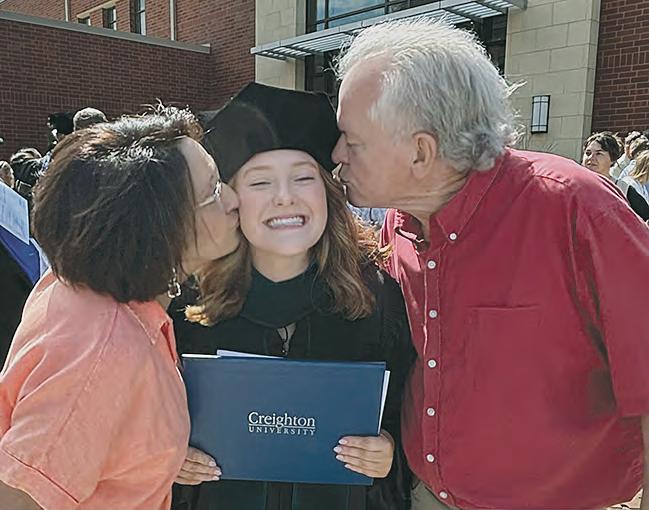
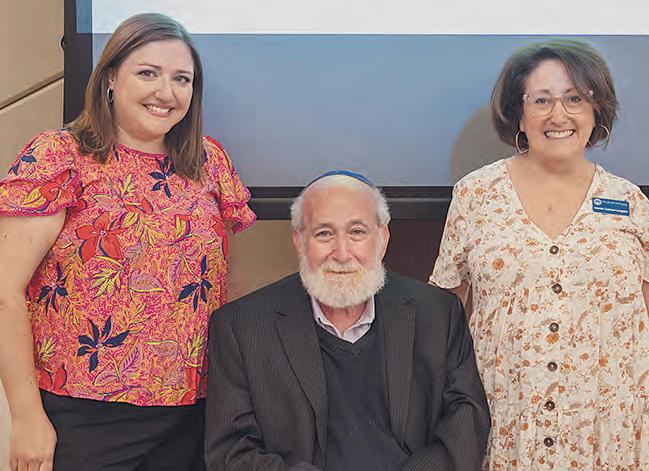

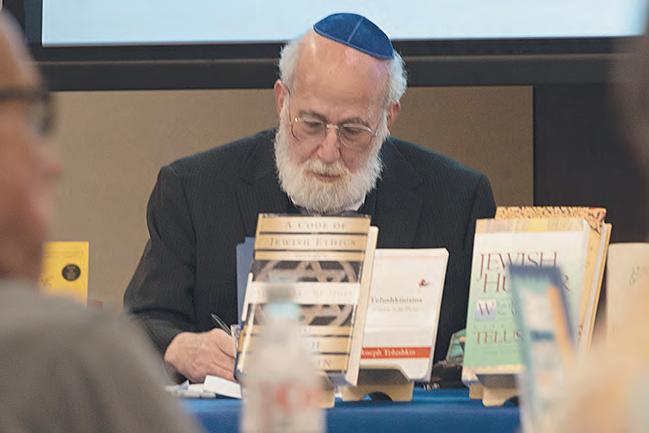
(Founded in 1920)
Margie Gutnik
President
Annette van de Kamp-Wright
Editor
Richard Busse
Creative Director
Howard Kutler
Advertising Executive
Lori Kooper-Schwarz
Assistant Editor
Gabby Blair
Staff Writer
Sam Kricsfeld
Digital support
Mary Bachteler
Accounting
Jewish Press Board
Margie Gutnik, President; Abigail Kutler, Ex-Officio; Helen Epstein; Andrea Erlich; Seth Feldman; David Finkelstein; Ally Freeman; Mary Sue Grossman; Chuck Lucoff; Suzy Sheldon; Joseph Pinson and Larry Ring.
The mission of the Jewish Federation of Omaha is to build and sustain a strong and vibrant Omaha Jewish Community and to support Jews in Israel and around the world. Agencies of the JFO are: Institute for Holocaust Education, Jewish Community Relations Council, Jewish Community Center, Jewish Social Services, Nebraska Jewish Historical Society and the Jewish Press Guidelines and highlights of the Jewish Press, including front page stories and announcements, can be found online at: www.jewishomaha.org; click on ‘Jewish Press.’ Editorials express the view of the writer and are not necessarily representative of the views of the Jewish Press Board of Directors, the Jewish Federation of Omaha Board of Directors, or the Omaha Jewish community as a whole. The Jewish Press reserves the right to edit signed letters and articles for space and content. The Jewish Press is not responsible for the Kashrut of any product or establishment.
Editorial
The Jewish Press is an agency of the Jewish Federation of Omaha. Deadline for copy, ads and photos is: Thursday, 9 a.m., eight days prior to publication. E-mail editorial material and photos to: avandekamp@jewishomaha.org ; send ads (in TIF or PDF format) to: rbusse@jewishomaha.org
Letters to the Editor Guidelines
The Jewish Press welcomes Letters to the Editor. They may be sent via regular mail to: The Jewish Press, 333 So. 132 St., Omaha, NE 68154; via fax: 1.402.334.5422 or via e-mail to the Editor at: avandekamp@jewishomaha.org.
Letters should be no longer than 250 words and must be single-spaced typed, not hand-written. Published letters should be confined to opinions and comments on articles or events. News items should not be submitted and printed as a “Letter to the Editor.”
The Editor may edit letters for content and space restrictions. Letters may be published without giving an opposing view. Information shall be verified before printing. All letters must be signed by the writer. The Jewish Press will not publish letters that appear to be part of an organized campaign, nor letters copied from the Internet. No letters should be published from candidates running for office, but others may write on their behalf.
Letters of thanks should be confined to commending an institution for a program, project or event, rather than personally thanking paid staff, unless the writer chooses to turn the “Letter to the Editor” into a paid personal ad or a news article about the event, project or program which the professional staff supervised. For information, contact Annette van de Kamp-Wright, Jewish Press Editor, 402.334.6450.
Postal
The Jewish Press (USPS 275620) is published weekly (except for the first week of January and July) on Friday for $40 per calendar year U.S.; $80 foreign, by the Jewish Federation of Omaha. Phone: 402.334.6448; FAX: 402.334.5422.
Periodical postage paid at Omaha, NE. POSTMASTER: Send address changes to: The Jewish Press, 333 So. 132 St., Omaha, NE 68154-2198 or email to: jpress@jewishomaha.org
ANNETTE VAN DE KAMP-WRIGHT
Jewish Press Editor
“Netflix’s Hitler and the Nazis: Evil on Trial aims to make the Holocaust hit home for a younger generation,” the Jewish Telegraphic Agency’s Gabe Friedman wrote the other day. It’s an impressive goal, and an optimistic headline. Truth be told: I’ve only watched two of the six episodes so far, so my opinion is incomplete at best. If you haven’t seen it yet, I’ll try not to spoil too much. Besides, you, of course, already know the story anyway.
Why did I feel the need to watch it? I’m not sure; I normally skip right over WWII documentaries, regardless what streaming service I am on. Books and podcasts, yes; television, no thank you. Jane Rips told me the other day she watches stuff like this, “just to make sure we still won.” These days, that’s not as offbeat a thought as you think. We are all in dire need of reminders.
I don’t like reenactments. There, I said it. I don’t mean to insult anyone, and please forgive me, but I’ve never understood why people feel the need to dress up and replay Civil War battles that were already fought. I think I feel the same when I see some poor schmuck dressed up as Adolf in a documentary. We have evidence it happened, why do we need to recreate anything? Oh wait; the “younger generation.”
“The difference […],” Friedman wrote, “is in the packaging, and that’s the framework that started the project. The series uses archival footage and audio and makes use of the standard talking-heads format. But with the help of dramatically recreated
Editorials express the view of the writer and are not necessarily representative of the views of the Jewish Press Board of Directors, the Jewish Federation of Omaha Board of Directors, or the Omaha Jewish community as a whole.
scenes from history and frequent flashbacks, it’s constructed more like a narrative thriller miniseries than a documentary.”
Will it help? How do we even measure that? And are viewers more likely to understand with the recreated scenes, or could they possibly walk away
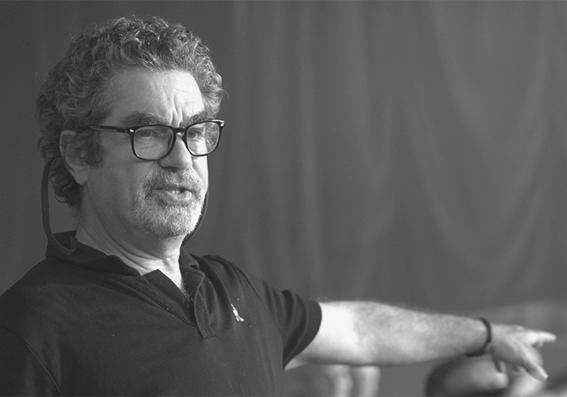
thinking it’s all just show? Something a screenwriter dreamed up, rather than factual history? Or, and I can’t believe I’m saying this, will that younger generation interpret it as an example of reality TV? Sort-of true, but heavily edited to make it more entertaining, more gripping, more scandalous? (By the way, while the data may show that knowledge of the Holocaust among millennials and Gen Z’s is on the decline, let’s not forget there are plenty of older adults who are equally ignorant.)
Bottom line: this is why I don’t like to watch documentaries about the Nazis. It upsets me. I already know the stories. I worry what others will think. I imagine strangers looking at the footage and saying mean things, not believing any of it. Then, I overthink everything. I wonder if it is possible to remember the important lessons and at the same time forget about Hitler. Bury his memory. I would like to never see his image again, real, or portrayed by an actor. I’m angsty. Finally, I worry that a sizable part of the population simply doesn’t care about any of this.
One last thought: the notion that the stories of the Holocaust aren’t good or interesting enough to be told without bells and whistles is insulting. I know Director Joe Berlinger’s intentions are good, and I know nothing about filmmaking and shouldn’t criticize his work. But, but.
When Berlinger said about WWII documentaries, “that stuff always feels very dusty and creaky. It’s like grainy, black and white archival footage intercut with mediocrely shot interviews,” it makes me sad. It’s also not entirely true.
What he should have said was: “I’m telling the story again, because it’s worth telling. We have to tell it as many times as possible. It doesn’t matter how, or with what special effects, as long as we tell it. This story is bigger than us. We will keep telling it, and we will never stop.”
Now that, I could get behind.
GERARD LEVAL
Thursday, June 6 marked the 80th anniversary of D-Day, the Allied landings along the Normandy coast during World War II. Most Americans are somewhat aware of D-Day and to some it may even stand out as a pivotal moment in the history of Western civilization. To me, the anniversary of DDay is highly personal.
Were it not for the success of D-Day, I would never have existed. Therefore, I celebrate each June 6 as a kind of pre-birthday.
My mother’s Jewish family had lived in France for several hundred years and in Paris for three-quarters of a century when the German army marched into Paris in the spring of 1940. The family had a pleasant middle-class existence in the French capital. Fiercely patriotic, members of the family had served in the French army since the time of Napoleon and my grandfather’s twin brother had made the ultimate sacrifice during the Battle of Verdun in World War I.
At the time of the French Revolution, 150 years earlier, French Jews had achieved full French civil rights, from which my mother’s family amply benefited. With the arrival of the Nazis, who received the support of certain French collaborators, all of that came to an end. Beginning in 1941, the Nazi occupiers with the full cooperation of the puppet Vichy government began a process of segregating, isolating and persecuting Jews living in France. By the fall of 1941, Jews were required to display a yellow star on their outer garments and were subjected to increasing restrictions. In 1942, deportations to the death camps in Poland began and steadily accelerated.
But on June 6, 1944, under the command of General Dwight Eisenhower, hundreds of thousands of American, British, Canadian and free French soldiers stormed the beaches of Normandy, which were heavily defended by German fortifications. There were over 10,000 casualties among the young men who landed on the beaches that day. Nearly 5,000 people, more than half Americans, gave their lives, dying in the effort to create a beachhead from which France would be freed from the grip of German occupation. Most of the soldiers who were killed were in their late teens or early twenties. They came from every
corner of America and of every background. In the face of imminent death, courage was everywhere in abundance.
The violence of D-Day was the beginning of a military campaign that would take months and cost the Allies hundreds of thousands of casualties but which brought a measure of hope to those targeted for extermination. Still, it would take weeks for Eisenhower’s army to break out of the beachhead and steadily liberate France.
During much of the German occupation, my family had benefited from relative immunity from deportations because of their long-standing residency in France and my grandfather’s extensive military record. Although subjected to all of the humiliations that were imposed on Jews, they had not been specifically targeted for death because so many foreign-born Jews were available to assuage the Nazis’ unrelenting desire to murder Jews.
340,000 Jews living in France in 1940, more than 75,000 were deported to death camps, where about 72,500 were murdered. Of that number, a majority were Parisian Jews.
Without the ultimate sacrifice of thousands of Americans and the liberation that those soldiers made possible, my grandparents, my mother and my
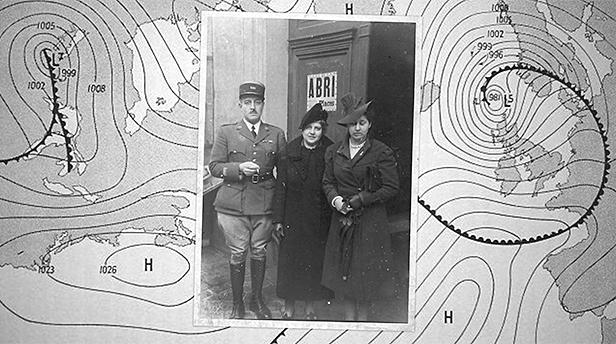
The author’s grandparents and his mother in front of their building in Paris, ca. 1940. At rear, surface weather analysis map shows weather fronts in and around Normandy on June 5, 1944.
ard Laval; Wikipedia
But by the summer of 1944, attention was rapidly turning to the previously immune native French Jews. My family, knowing that they were now in danger of deportation, determined that they had to go into hiding. They accumulated food and supplies and stacked them in the apartment above theirs, an apartment that had been vacated by people who had decided it was dangerous for them to remain in Paris and had given my grandparents the keys to their apartment “just in case.”
My grandparents then locked up their own apartment and went upstairs. They had to remain quiet at all times, which meant even avoiding the use of toilets. My mother noted that, after a few days, with food running low, hiding became profoundly uncomfortable and was not likely to provide protection for much longer.
But, in the nick of time, beginning Aug. 24 the conquering Allied armies entered and liberated Paris from Nazi occupation. The prospect of deportation and death ended.
My family’s survival was the direct result of the successful Allied landing on D-Day. Of some
uncle would likely have been deported to Auschwitz and certain death. I would never have had the opportunity to exist and to benefit from all of the good fortune that those who gave up their lives at Omaha Beach and the other beaches were denied.
For me, D-Day is a day of personal contemplation and of profound thanks to those who sacrificed that I might live. The young soldiers who suffered and died on D-Day and in the days following ultimately led to the unconditional surrender of Nazi Germany. Those soldiers truly made our world a better place. June 6 is an important day of commemoration and, for me, a day of immense gratitude to the brave American soldiers who gave hope and life to my family.
Gerard Leval is a partner in the Washington, DC office of a national law firm. His book "Lobbying for Equality, Jacques Godard and the Struggle for Jewish Civil Rights during the French Revolution" was published by HUC Press in 2022. The views and opinions expressed in this article are those of the author and do not necessarily reflect the views of JTA or its parent company, 70 Faces Media.
In his 2012 book, Pox, historian Michael Willrich looked at the politics of vaccination during the last great waves of smallpox in the U.S. That’s when he discovered the case files of Harry Weinberger (1886-1944), a young, idealistic attorney who represented parents who refused to get their children vaccinated, and defended two of the best-known and most notorious anarchists of the early 20th century: Emma Goldman and Alexander Berkman.
Along the way, the little-known lawyer (who lacks even a Wikipedia entry) pioneered the field of civil liberties law.
In his latest book, American Anarchy: The Epic Struggle between Immigrant Radicals and the US Government at the Dawn of the Twentieth Century — last month named a finalist for the Pulitzer Prize in history — Willrich chronicles how, starting in the 1880s, the government launched a decades-long war on anarchy and radicalism, involving spying, censorship and deportation, which laid the foundations for the modern surveillance state.
It’s a “war” often told through the stories of the government officials who carried it out: Anthony Comstock, the puritanical New Yorker who helped make birth control a federal crime; Attorney General A. Mitchell Palmer, who in 1920 rounded up thousands of suspected anarchists on dubious charges; and a young J. Edgar Hoover, the future FBI chief who cut his teeth by disrupting and prosecuting radical networks.
But Willrich adjusts the lens to focus on Goldman and Weinberger, two Jews who made civil liberties their common cause despite her anarchist views and his almost spiritual belief in the authority of the Constitution.
“One of the central animating ideas in the book is the relationship between the anarchist movement, which defined itself as against the rule of law, and how anarchists became so enmeshed in the American legal system, and actually made some contributions to our legal culture today,” Willich told me in a recent conversation. “My larger interest is in what I call ‘speaking law to power’: using legal language, practices and strategies to challenge the growth of state power.”
“American Anarchy” is also a lively portrait of a period of American upheaval, with violent clashes between unions and management, and immigrants crowding rallies and reading publications that forced a nervous establishment to try to limit free speech and deport “anarchist aliens” like Goldman and Berkman, her erstwhile lover and lifelong collaborator.
At the center of the story is Goldman — Russian immigrant, nurse, author, birth control advocate, pacifist, radical celebrity — and Weinberger, a son of the Lower East Side drawn by Goldman and Berkman, writes Willrich, “ever deeper into their network of mostly Jewish anarchists, labor radicals, and bohemians in New York. Willrich is the Leff Families Professor of History at Brandeis University. He and I spoke about why so many Jews were attracted to radical politics, how Goldman is misrepresented even by her fans, and the ways in which the clashes of 100 years ago relate to current debates over free expression.
The conversation was edited for length and clarity.
This is a very Jewish story. Tell me about the conditions that made anarchism attractive to Jews in this period.
In the 1870s and ’80s, anarchism emerges as the radical edge of the American labor movement. In that period, most anarchists in the U.S. were of German, Irish, or English descent. But with mass emigration in the 1890s, 1900s and 1910s, the U.S. becomes increasingly either Russian, Jewish or Italian. The conditions that encouraged Jews to think of their situation in radical terms included labor exploitation and vast disparities not just in wealth but in the power between industrial employers and their workforce. Most Jewish immigrants were in trades like the garment industry, where they were subjected to significant economic exploitation.
Anarchism competed for the affiliation of Jewish immigrants in places like the Lower East Side and later up in East Harlem. Most Jewish immigrants did not become anarchists. Many just sort of went about the business of preserving family and their Jewish life without regard to deep immersion in politics, but some became truly radicalized by their encounters with industrial America and with the police. Many joined the Socialist Party. This is a period when the police are brutally suppressing strikes and a significant number of the leading anarchist leaders during this period were Jewish, inspiring an anti-Jewish backlash, certainly among law enforcement. Justice Department files from this period are filled with surveillance reports full antisemitic language. Some openly call Weinberger a “dirty Jew” and call for his deportation even though he is an American citizen who believes in the Constitution above all else.
Emma Goldman is much revered today as a feisty activist and feminist matriarch. Your book is a reminder that she was significantly more radical than some of her modernday fans realize or acknowledge.
She’s a very attractive character to a historian because she’s incredibly smart, principled and very literary. She seemed to know everybody and reached out well beyond the boundaries
of the anarchist movement to forge alliances with affluent, liberal-minded people as well. But her beliefs were very radical. At the core of anarchism for her was the idea that real liberty was unregulated by man-made law and that government and capitalism are, by nature, coercive, violent and unnecessary. She promoted these ideas through her Mother Earth magazine, published in N.Y. in the early 1900s. They were the ideas that she spoke about in public forums across the United States, ranging from small halls to crowded venues on the Lower East Side where she spoke Yiddish or German.

Harry Weinberger didn’t become an anarchist but rather a legal pioneer in defending civil liberties. What was the Jewish milieu that he came out of?
Harry Weinberger was American born and proudly so. His parents immigrated from the Austro-Hungarian Empire; his father was a fruit peddler on Houston Street on the Lower East Side. He grew up in Lower Manhattan where he had everyday encounters with Irish gangs and a culture steeped in antisemitism. But he saw great things for himself. He read widely, like many other young first-generation Jewish Americans of his era. He took full advantage of the New York public schools and got a night law school degree at NYU with a really significant number of future civil liberties lawyers. For Jewish Americans of that era, the law — the American scripture of the Declaration of Independence, the Constitution and the common law became a source not just of professional opportunity and growth, but also a way to express ideas of justice. It’s hard not to see this as a kind of displacement from more formal religious practices, of studying the Talmud. He finds in these legal texts an almost scriptural basis for an understanding of justice. What he had in common with Emma Goldman was a belief that justice required absolute liberty of the individual.
Would you describe him as a patriot?
Very much so. He would describe himself as a patriot. When World War I broke out, he was part of the movement for immigrants and their children to discard their hyphenate identity and to embrace Americanism. By the time of Woodrow Wilson’s 1916 presidential campaign, Weinberger was also a pacifist who opposed American entry in the war. But he really considered himself to be an American, through and through. This is the tension at the heart of this book’s narrative, in which Goldman, Berkman and Weinberger all came to work together. All three were demonized by the Justice Department and local police, who considered Harry Weinberger as dangerous a radical as Emma Goldman. He’s a constitutional true believer, and she believes that it’s all window dressing for capitalism, yet they end up engaging in some very consequential battles for freedom of speech and for fighting deportation laws. Their relationship was pretty remarkable, and she was always disappointed that he didn’t convert to anarchism.
That relationship between Goldman and Weinberger — never romantic, unlike her early fling with Berkman — comes across as spirited, literary and even a little flirtatious on her part. How did you get inside their heads?
I really knew that I had a book when I was reading the correspondence between Goldman and Weinberger, written from the Missouri prison during her two-year term [starting in 1917] for her alleged conspiracy with Alexander Berkman to obstruct the military draft during World War I. She uses Weinberger as her go-between to all of her people around the country. You can see their relationship deepen, and also you can see her engagement with legal thinking and her insistence that Weinberger and others create a legal defense league to protect political prisoners and represent them in court. You can see an anarchist embracing some very modern legal strategies that anticipate the kind of civil liberties organizations that would emerge full force in the 1920s. Their relationship is also very personal, especially when it starts to head towards her deportation. The poignancy of those letters really moved me.
Weinberger defended people who were hounded for their beliefs in anarchism, birth control, opposition to the military draft and compulsory vaccination. What’s the common thread among these very different kinds of
ideas? For anarchists, and for folks like Weinberger, freedom had to be defended against what they saw as growing government encroachment on personal liberty. Simply telling working class people about birth control techniques was illegal in the early 20th century and mailings about it, a federal crime. Compulsory vaccination laws were relatively new during this period, and they also involved government interference with liberty and bodily integrity in Weinberger’s view. This was openly discussed in 1905 by the Supreme Court, in Jacobson v. Massachusetts, when the Supreme Court upheld the right of state governments to order people to get vaccinated. Your book is in part about the rise of the American surveillance state, so I want to ask this in a very reactionary way. We know some anarchists either called for violence or actually carried it out. Alexander Berkman shot and nearly killed industrialist Henry Clay Frick in an assassination attempt, and was involved in a bomb-building project in 1914 that killied four people in an East Harlem tenement. The “Preparedness Day” dynamite bombing in San Francisco killed 10 people in 1916. Was the government wrong in surveilling and throwing the weight of the law against what today we would call terrorism?
It’s a fair question and I don’t think it’s reactionary at all. But the extent to which the government went at every level to suppress anarchism was extreme, and, as I argue in the book, was as radical as anarchism itself, departing from traditional constitutional ideas and the idea of liberty in America. The police in New York City and other major American cities, the Justice Department and immigration officials pursued anarchists and other immigrant radicals with a vengeance. They suppressed anarchist publications, even when they did not advocate violence. But the most strenuous use of government power to crush the movement was through the use of the immigration laws. In 1903, in the wake of the assassination of President McKinley by an American anarchist, Congress enacted legislation that banned the entry of non-U.S. citizens who subscribe to anarchist beliefs. By 1918, Congress had enacted a law that allowed for the deportation of non-naturalized, “alien anarchists” in the U.S. This is how Goldman and Berkman were eventually deported to Russia in 1919. Should the police and the state have been seeking ways to protect innocent people from anarchist terrorism? Absolutely. That said, the category of ‘alien anarchist’ was extremely convenient for public officials that sought to get rid of all kinds of radicalism within the labor movement, not just anarchists.
Your book arrives almost at the 100th anniversary of the Johnson-Reed Act, which limited the number of immigrants through a quota. Was the xenophobia that’s a theme throughout your book a cause or a consequence of the backlash against radical politics?
I think both. Nativist ideas and politics were very much present from the start of the anarchist movement. For a significant period of time starting in the 1880s, anti-radicalism becomes the principal language of immigration restriction. By the time of the Johnson-Reed Act in 1924, eugenics and the desire to make American culture whiter in a 19th-century sense superseded concerns about radicalism. Anti-radicalism was certainly not the only impetus for rising American nativism, but it was a powerful way in which American leaders defended closing the borders. I was struck how immigrants become scapegoats for whatever is making Americans fearful at a given moment.
So while today the biggest fear is economic displacement, 100 years ago it was racial displacement, and in the early 20th century it was fear of radicals or challenges to the industrial order. The stranger becomes a vessel for America’s anxieties.
Immigrants are some of the most marginalized people. There are a number of folks in the book who are really young and poor. They are working 12 hours a day, in factories, they’d come home at night and read Tolstoy, Goldman, Berkman, and Russian anarchist Pyotr Kropotkin. And when they meet amongst themselves and they publish leaflets protesting actions by the Wilson administration, they end up just getting sentenced to 15 to 20 years in prison.
Your book was written well ahead of the last eight months, but I was reading it at the same time that police were breaking up pro-Palestinian encampments on college campuses. Did you see parallels or differences in this clash between the state and free speech or radical speech and the ones you describe in your book?
I haven’t fully sorted that out for myself, but I will say that there are resonances in that we still have extremely meaningful discussions about the boundaries of speech that cut to the very definition of American democracy.
Andrew Silow-Carroll is editor at large of the New York Jewish Week and managing editor for Ideas for the Jewish Telegraphic Agency.
The views and opinions expressed in this article are those of the author and do not necessarily reflect the views of JTA or its parent company, 70 Faces Media.
B’NAI ISRAEL SYNAGOGUE
618 Mynster Street Council Bluffs, IA 51503-0766
712.322.4705 www.cblhs.org
BETH EL SYNAGOGUE
Member of United Synagogues of Conservative Judaism 14506 California Street Omaha, NE 68154-1980
402.492.8550 bethel-omaha.org
BETH ISRAEL
SYNAGOGUE
Member of Union of Orthodox Jewish Congregations of America 12604 Pacific Street Omaha, NE. 68154
402.556.6288 BethIsrael@OrthodoxOmaha.org
CHABAD HOUSE
An Affiliate of Chabad-Lubavitch 1866 South 120 Street Omaha, NE 68144-1646
402.330.1800 OChabad.com email: chabad@aol.com
LINCOLN JEWISH COMMUNITY:
B’NAI JESHURUN
South Street Temple
Union for Reform Judaism 2061 South 20th Street Lincoln, NE 68502-2797
402.435.8004 www.southstreettemple.org
OFFUTT AIR
FORCE BASE
Capehart Chapel 2500 Capehart Road Offutt AFB, NE 68123
402.294.6244 email: oafbjsll@icloud.com
TEMPLE ISRAEL
Union for Reform Judaism (URJ) 13111 Sterling Ridge Drive Omaha, NE 68144-1206
402.556.6536 templeisraelomaha.com
LINCOLN JEWISH COMMUNITY:
TIFERETH ISRAEL
Member of United Synagogue of Conservative Judaism 3219 Sheridan Boulevard Lincoln, NE 68502-5236 402.423.8569 tiferethisraellincoln.org
Monthly Speaker Series Service, Friday, July 12, 7:30 p.m. with guest speaker. Our service leader is Larry Blass. Everyone is always welcome at B’nai Israel!
For information about our historic synagogue, please visit our website at www.cblhs.org or contact any of our other board members: Renee Corcoran, Scott Friedman, Rick Katelman, Janie Kulakofsky, Howard Kutler, Carole and Wayne Lainof, Ann Moshman, MaryBeth Muskin, Debbie Salomon and Sissy Silber. Handicap Accessible.
Services conducted by Rabbi Steven Abraham and Hazzan Michael Krausman.
IN-PERSON AND ZOOM MINYAN SCHEDULE:
Mornings on Sundays, 9 a.m.; Mondays and Thursdays, 7 a.m.; Evenings on Sunday-Thursday, 5:30 p.m.
FRIDAY: Nebraska AIDS Project Lunch, 11:30 a.m.; Kabbalat Shabbat 6 p.m. at Beth El & Live Stream.
SATURDAY: Shabbat Morning Service, 10 a.m. at Beth El & Live Stream; Havdalah 9:45 p.m. Zoom only.
SUNDAY: Morning Minyan, 9 a.m. Zoom Only; Dinner at the Stephen Center, 5 p.m.
THURSDAY: Beth El Office Closed.
FRIDAY-July 5: Kabbalat Shabbat 6 p.m. at Beth El & Live Stream.
SATURDAY-July 6: Shabbat Morning Service, 10 a.m. at Beth El & Live Stream; Havdalah 9:45 p.m. Zoom only.
SUNDAY: Morning Minyan, 9 a.m. Zoom Only; Cook & Serve Dinner, 3:30 p.m. at Ronald McDonald House.
FRIDAY-July 12: Kabbalat Shabbat, 6 p.m. at Beth El & Live Stream.
SATURDAY-July 13: Shabbat Morning Service 10 a.m. at Beth El & Live Stream; Havdalah, 9:40 p.m. Zoom only.
Please visit bethel-omaha.org for additional information and service links.
FRIDAY: Nach Yomi, 6:45 a.m.; Shacharit, 7 a.m.; Mincha/Kabbalat Shabbat, 7 p.m.; Candlelighting, 8:43 p.m.
SATURDAY: Shabbat Kollel, 8:30 a.m.; Shacharit, 9 a.m.; Tot Shabbat, 10:30 a.m.; Youth Class, 10:45 a.m.; Soulful Torah, 7:40 p.m. with Rabbi Geiger; Mincha 8:30 p.m.; Laws of Shabbos/Kids Activity, 9 p.m.; Havdalah, 9:53 p.m.
SUNDAY: Shacharit 9 a.m.; Kinyan 9:40 a.m.; Mincha/Ma’ariv, 8:30 p.m.
MONDAY: Nach Yomi, 6:45 a.m.; Shacharit, 7 a.m.; Camp JYE BI 2024, 9 a.m.; Mincha/Ma’ariv, 8:30 p.m.
TUESDAY: Nach Yomi, 6:45 a.m.; Shacharit, 7 a.m.; Camp JYE BI 2024, 9 a.m.; Kinyan 8:10 p.m.; Mincha/Ma’ariv, 8:30 p.m.
WEDNESDAY: Nach Yomi, 6:45 a.m.; Shacharit, 7 a.m.; Camp JYE BI 2024, 9 a.m.; Mincha/Ma’ariv, 8:30 p.m.
THURSDAY: Shacharit, 9 a.m.; Kinyan, 8:10 p.m.; Mincha/Ma’ariv, 8:30 p.m.
FRIDAY-July 5: Nach Yomi, 6:45 a.m.; Shacharit, 7 a.m.; Camp JYE BI 2024, 9 a.m.; Mincha/Kabbalat Shabbat, 7 p.m.; Candlelighting, 8:42 p.m.
SATURDAY-July 6: Shabbat Kollel, 8:30 a.m.; Shacharit 9 a.m.; Tot Shabbat 10:30 a.m.; Youth Class, 10:45 a.m.; Soulful Torah, 7:40 p.m. with Rabbi Geiger; Mincha 8:30 p.m.; Laws of Shabbos/Kids Activity, 9 p.m.; Havdalah, 9:51 p.m.
SUNDAY: Shacharit, 9 a.m.; Kinyan, 9:40 a.m.; Mincha/Ma’ariv 8:30 p.m.
MONDAY: Nach Yomi, 6:45 a.m.; Shacharit, 7 a.m.; Camp JYE BI 2024, 9 a.m.; Mincha/Ma’ariv, 8:30 p.m.
TUESDAY: Nach Yomi, 6:45 a.m.; Shacharit, 7 a.m.; Camp JYE BI 2024, 9 a.m.; Kinyan, 8:10 p.m.; Mincha/Ma’ariv, 8:30 p.m.
WEDNESDAY: Nach Yomi, 6:45 a.m.; Shacharit, 7 a.m.; Camp JYE BI 2024, 9 a.m.; Mincha/Ma’ariv, 8:30 p.m.
THURSDAY: Nach Yomi, 6:45 a.m.; Shacharit, 7 a.m.; Camp JYE BI 2024, 9 a.m.; Character Development, 9:30 a.m.; Kinyan, 8:10 p.m.; Mincha/Ma’ariv,
8:30 p.m.
FRIDAY-July 12: Nach Yomi, 6:45 a.m.; Shacharit, 7 a.m.; Camp JYE BI 2024, 9 a.m.; Mincha/Kabbalat Shabbat, 7 p.m.; Candlelighting, 8:39 p.m.
SATURDAY-July 13: Shabbat Kollel, 8:30 a.m.; Shacharit 9 a.m.; Tot Shabbat 10:30 a.m.; Youth Class 10:45 a.m.; Tehillim, 7:15 p.m. at the Zivs; Soulful Torah, 7:35 p.m. with Rabbi Geiger; Mincha, 8:30 p.m.; Laws of Shabbos/Kids Activity 9 p.m.; Havdalah, 9:47 p.m. Please visit orthodoxomaha.org for additional information and Zoom service links.
All services are in-person. All classes are being offered in-person and via Zoom (ochabad.com/academy). For more information or to request help, please visit www.ochabad.com or call the office at 402.330.1800.
FRIDAY: Shacharit, 8 a.m.; Inspirational Lechayim, 5:45 p.m. with Rabbi and friends: Ochabad.com/ Lechayim; Candlelighting, 8:43 p.m.
SATURDAY: Shacharit, 9:30 a.m. followed by Kiddush and Cholent; Shabbat Ends, 9:52 p.m.
SUNDAY: Sunday Morning Wraps: Shacharit, 99:30 a.m., Video Presentation, 9:30 a.m. and Breakfast, 9:45 a.m.
MONDAY: Shacharit, 8 a.m.; Personal Parsha, 9:30 a.m.; Intermediate Biblical Hebrew Grammar, 10:30 a.m. with Prof. David Cohen; Parsha Reading, 6 p.m. with Prof. David Cohen.
TUESDAY: Shacharit 8 a.m.; Cooking Club Lunch Clutch, 11:30 a.m.-1 p.m. RSVP at ochabad.com/lun chclutch; Intermediate Biblical Hebrew Grammar, 6 p.m. with Prof. David Cohen; Introductory Biblical Hebrew Grammar, 7 p.m. with Prof. David Cohen.
WEDNESDAY: Shacharit 8 a.m.; Mystical Thinking (Tanya), 9:30 a.m.; Introductory Biblical Hebrew Grammar, 10:30 a.m. with Prof. David Cohen; Parsha Reading, 11:30 a.m. with Prof. David Cohen.
THURSDAY: Shacharit, 8 a.m.; Introduction to Alaphabet, Vowels & Reading Hebrew, 10 a.m. with Prof. David Cohen; Advanced Biblical Hebrew Grammar, 11 a.m. with Prof. David Cohen; Talmud Study (Sanhedrin 34), noon; Introduction to Alphabet, Vowels & Reading Hebrew, 6 p.m. with Prof. David Cohen; Kitzur Shulchan Aruch (Code of Jewish Law) Class, 7 p.m.
FRIDAY-July 5: Shacharit 8 a.m.; Inspirational Lechayim, 5:45 p.m. with Rabbi and friends: Ochaba d.com/Lechayim; Omaha Young Professionals Shabbat Dinner; Candlelighting, 8:42 p.m.
SATURDAY-July 6: Shacharit, 9:30 a.m. followed by Kiddush and Cholent; Shabbat Ends, 9:50 p.m.
SUNDAY: Sunday Morning Wraps: Shacharit, 99:30 a.m., Video Presentation, 9:30 a.m. and Breakfast, 9:45 a.m.
MONDAY: Shacharit, 8 a.m.; Camp Gan Israel—Day 1, 9 a.m-3 p.m. go to ochabad.org for more info and to register; Personal Parsha, 9:30 a.m.; Intermediate Biblical Hebrew Grammar, 10:30 a.m. with Prof. David Cohen; Parsha Reading, 6 p.m. with Prof. David Cohen.
TUESDAY: Shacharit, 8 a.m.; Camp Gan Israel—Day 2, 9 a.m-3 p.m.; Intermediate Biblical Hebrew Grammar, 6 p.m. with Prof. David Cohen; Introductory Biblical Hebrew Grammar, 7 p.m. with Prof. David Cohen.
WEDNESDAY: Shacharit 8 a.m.; Camp Gan Israel—Day 3, 9 a.m-3 p.m.; Mystical Thinking (Tanya), 9:30 a.m.; Introductory Biblical Hebrew Grammar, 10:30 a.m. with Prof. David Cohen; Parsha Reading, 11:30 a.m. with Prof. David Cohen.
THURSDAY: Shacharit 8 a.m.; Camp Gan Israel— Day 4, 9 a.m-3 p.m.; Introduction to Alaphabet, Vowels & Reading Hebrew, 10 a.m. with Prof. David Cohen; Advanced Biblical Hebrew Grammar, 11 a.m. with Prof. David Cohen; Talmud Study (Sanhedrin 34), noon; Introduction to Alphabet, Vowels & Reading Hebrew, 6 p.m. with Prof. David Cohen; Kitzur Shulchan Aruch (Code of Jewish Law) Class, 7 p.m.
FRIDAY-July 12: Shacharit 8 a.m.; Camp Gan Israel—Day 5, 9 a.m-3 p.m.; Campers Bake Sale and Festival, 2 p.m.; Inspirational Lechayim, 5:45 p.m. with Rabbi and friends: Ochaba d.com/Lechayim; Candlelighting, 8:39 p.m.
SATURDAY-July 13: Shacharit 9:30 a.m. followed by Kiddush and Cholent; Shabbat Ends, 9:46 p.m.
LINCOLN JEWISH COMMUNITY: B’NAI JESHURUN & TIFERETH ISRAEL
Services facilitated by Rabbi Alex Felch. All services offered in-person with live-stream or teleconferencing options.
FRIDAY: Last Friday Dinner, 6 p.m. at SST. RSVP requested to lincolnjewishcommuntiy@gmail.com; Erev Shabbat Service with Rabbi Alex, 7 p.m. at SST; Shabbat Candlelighting, 8:44 p.m.
SATURDAY: Shabbat Morning Service, 9:30-11 a.m. at TI; Torah Study, noon on Parashat Shlach via Zoom; Havdalah, 9:53 p.m.
SUNDAY: SST Gardening, 8:30-10 a.m.; Men’s Bike/ Coffee Group, 10:30 a.m. at The Mill on the Innovation Campus. For more information or questions please email Al Weiss at albertw801@gmail.com; Pickleball, 3-5 p.m. Anyone interested in playing or learning how to play can text Miriam at 402.470.2393. If there are enough interested people; we will play in the Social Hall at TI.
THURSDAY: Synagogue Offices Closed.
FRIDAY-July 5: Erev Shabbat Service with Rabbi Alex, 6:30-7:30 p.m. at SST; Shabbat Candlelighting, 8:44 p.m.
SATURDAY-July 6: Shabbat Morning Service, 9:3011 a.m. at TI; No Torah Study; Havdalah, 9:53 p.m. SUNDAY: Men’s Bike/Coffee Group, 10:30 a.m. at The Mill on the Innovation Campus. For more information or questions please email Al Weiss at albertw801@gmail.com; Pickleball, 3-5 p.m. Anyone interested in playing or learning how to play can text Miriam at 402.470.2393. If there are enough interested people; we will play in the Social Hall at TI.
THURSDAY: Synagogue Offices Closed for training.
FRIDAY-July 12: Erev Shabbat Service with Rabbi Alex, 6:30-7:30 p.m. at SST; Shabbat Candlelighting, 8:44 p.m.
SATURDAY-July 13: Shabbat Morning Service, 9:30-11 a.m. at TI; No Torah Study; Havdalah, 9:53 p.m.
FRIDAYS: Virtual Shabbat Service, 7:30 p.m. every first and third of the month at Capehart Chapel. Contact TSgt Jason Rife at OAFBJSLL@icloud.com for more information.
In-person and virtual services conducted by Rabbi Benjamin Sharff, Rabbi Deana Sussman Berezin, and Cantor Joanna Alexander
FRIDAY: Drop in Mah Jongg, 9-11 a.m. In-Person; Shabbat B’yachad Service, 6 p.m. In-Person & Zoom.
SATURDAY: Torah Study, 9:15 a.m. In-Person & Zoom; Shabbat Morning Service, 10:30 a.m. In-Person & Zoom.
SUNDAY: Multi-generational Rosh Chodesh Event, 1 p.m. at Loess Hills Lavendar Farm. RSVP Required. In-Person.
WEDNESDAY: Yarn It, 9 a.m. In-Person. THURSDAY: Temple Israel Office Closed. FRIDAY-July 5: Shabbat B’yachad Service, 6 p.m. In-Person & Zoom.
SATURDAY-July 6: Torah Study 9:15 a.m. In-Person & Zoom; Shabbat Morning Service, 10:30 a.m. InPerson & Zoom.
TUESDAY: Holy Smokes, 7 p.m. In-Person.
WEDNESDAY: Yarn It, 9 a.m.; Exploring the Holocaust: Perspectives of Persecution, 7 p.m. In-Person.
THURSDAY: The Zohar: Thursday Morning Class, 11 a.m. with Rabbi Sharff and Rabbi Azriel — In-Person & Zoom.
FRIDAY-July 12: Drop in Mah Jongg, 9-11 a.m. InPerson; Shabbat B’yachad Service, 6 p.m. In-Person & Zoom.
SATURDAY-July 13: Pride Parade, 8 a.m. Downtown In-Person; Torah Study 9:15 a.m. In-Person & Zoom; Shabbat Morning Service, 10:30 a.m. In-Person & Zoom.
Please visit templeisraelomaha.com for additional information and Zoom service links.
JEWISH PRESS NOTICE
PEGGY NOGG DELAND
Peggy Nogg Deland passed away on June 14, 2024, at age 93. She is survived by her children, Lesley Cohen, Sharee (Murray) Newman, Lawrence (Miriam Moscovici) Cohen, Risë Justman; grandchildren: Nicholas (Natalie Merz) Newman, Alexa (Jacob Savage) Newman, Jordan (Allegra) Cohen, Gabriel Cohen, Rebecca Ringley; great-grandchildren: Jule Savage, Reuben Savage and Evie Cohen.
Peggy was born on June 28, 1930. She courageously raised a family, often by herself. Peggy earned her Bachelor’s Degree from Omaha University while raising her family and working at Omaha Temple Israel preschool, which she cofounded. She continually pursued artistic projects, becoming a master quilter. Peggy gifted creative works to her family and friends. She was giving, self-sacrificing individual.
DR. FRED JERUZALSKI KADER
Dr. Fred Jeruzalski Kader passed away on June 19, 2024, at age 85 in Omaha. Services were held on June 21, 2024, at Beth El Cemetery and were officiated by Rabbi Abraham. Shiva was held in Omaha at the Beth El and Beth Israel Synagogues, two congregations that had meaningful impacts on his life. Shiva continued at the home of Howard and Lori Kader in Ellicott City, MD from June 25 through June 27, 2024.
He was preceded in death by his birth family who perished in the Holocaust: father Jakob Jeruzalski, mother Basza Ryvka Krysztal, brothers Ignace Jeruzalski, Paul Jeruzalski, Jules Jeruzalski, ½ brother Felix Jeruzalski and ½ sister Rachel Gitel Jeruzalski. After the war he was raised by his adopted father and mother, Abraham Chiam and Sarah Baila Kader, brothers Phil Kader, Nathan Kader, David Kader, Sam Kader, Louis Kader, Moe Kader, David Kader and sister Ruthie Kumec.
He is survived by his beloved wife, Sarah (nee Brona) Kader of Omaha; his children: Howard Kader (Lori) of Ellicott City, MD, Eileen Clignett (Edwin) of Omaha, and Darrin Kader (Karen) of Omaha; grandchildren: Joseph (Katie) and Emily Kader, Brittney and Jason Clignett, Lindsey and Jeremy Kader, Ashley (Matt) McNeal as well as several special nieces and nephews.
Dr. Fred Jeruzalski Kader was born in Antwerp, Belgium to Jakob Jeruzalski and Basza Ryvka Krysztal on July 20, 1938.
Fred Jeruzalski Kader lived an extraordinary life. After surviving the horrors of the Holocaust, he was raised by his great aunt and her family in Montreal, Quebec, Canada. Despite these atrocities, he overcame incredible odds to become a successful physician and an incredible human being. He graduated from McGill University with a Bachelor of Science degree and continued his education at McGill University Faculty of Medicine earning a Doctor of Medicine degree. He completed neurology and pediatric residencies at the Jewish General Hospital (Montreal), and Montreal General Hospital, Johns Hopkins Hospital School of Medicine (Maryland), Montefiore Hospital and Medical Center (New York) and completed his training as a Pediatric Neurologist at Albert Einstein College of Medicine of Yeshiva University (New York).
Fred received his American Board of Psychology and Neurology certification in Neurology with Special Competence in Child Neurology in 1978. He worked as a Pediatric Neurologist at the University of British Columbia, Vancouver for four years before setting down roots and becoming a fixture in the Omaha community. He began working at the University of Nebraska School of Medicine and then after many years, he went into private practice in Omaha until his retirement in 2020.
Fred and his beloved wife, Sarah, shared a special love affair for over 60 years. His devotion to her was incredible and steadfast. By all accounts he was a wonderful father and doting grandfather. He would do anything for his family. He will be remembered for the kindness he shared with everyone he met, wanting to learn every-

one’s story and having a special way of always making one feel as if you were the most important person in the room. He embodied the definition of a mensch with his sense of integrity, dignity, humility and compassion.
Fred enjoyed ice skating, attending the College World Series, UNO Maverick Hockey games but most importantly spending quality time with family and friends. He received numerous honors and awards such as the Master Teacher Award in 1973 at the University of British Columbia Vancouver; the Earl Siegel Award in 2001 by the Beth El Synagogue, and the Pediatric Legends award from the Children’s Hospital of Omaha in 2018. His most meaningful activity in his later years was his involvement in the Omaha Institute for Holocaust Education spending countless hours teaching children and adults in the local and regional communities about his experience in and aftermath of the Holocaust.
Memorials may be made in honor his memory, to the Institute of Holocaust Education https://fundraise.givesmart.com/form/ TaGEmg?vid=165lie
RICHARD “DICK” STANTON SEGAL
Richard “Dick” Stanton Segal passed away on June 15, 2024 at age 92. He was born on June 21, 1931 and was buried on what would have been his 93rd birthday. We celebrated his birthday and his wonderful long life. Dick is buried at Beth El Cemetery in Omaha with his wife and his parents, Leonard and Hilda Segal.
He was preceded in death by his wife of 55 years, June Segal.
He is survived by his children and their spouses: David Segal (Jayne Prazak-Segal), Tom Segal, Bob Segal (Melanie Lenart), Susanna Segal and Ann Segal Pratt (Greg Pratt) and four grandchildren: Alec Segal (Carlita Gorham), Alice Pratt, Louie Pratt, and Viv Segal. He lived the last 13 years in the Denver metro areas, where his oldest son lives with his wife and their son close by.
Dick has several nieces and nephews who have their own children and grandchildren. He has many special friends who he always enjoyed hearing from or visiting with. Dick always offered a helping hand to anyone who needed it, and at times offered them a place to live in their time of need. Dick and June always taught their kids to be fair, honest, open and always rejecting prejudice and as Dick said thousands of times, to “do the right things in life!”
Dick and his late brother Fred were born in Minneapolis. They moved with their parents to Omaha in their younger years and were members of Beth El Synagogue in Omaha.
During graduate school at the University of NebraskaLincoln for speech therapy, he met his future wife, June Richards. They fell in love and were married eight months later on Feb. 12, 1956 and were married 55 years before June passed in 2011.
They lived most of their married life in Lincoln and were active members of the Tifereth Israel Synagogue. Dick became a speech therapist and later owned a child care center, called Kiddie Land in Lincoln. Later he worked for many years helping developmentally disabled people. Dick was a dedicated husker sports fan, especially the husker big red football team.
Memorials may be sent to the Tifereth Israel Synagogue, 3219 Sheridan Blvd., Lincoln, NE, 68502.

Be a role model; the person you want your kid to be. What stronger anti-drug message is there?
For more information call: 1-800-648-4444 http://www.prevlink.org


ANNOUNCEMENT
ADVERTISE STATEWIDE for $225/25 word classified ad. Over 140 newspapers with circulation of more than 237,000. Contact the Jewish Press or call 1-800-369-2850.
HELLO NEBRASKA! Introducing www.nepublicnotices.com, a new public notice website presented as a public service by all Nebraska newspapers. Free access, fully searchable – because democracy depends upon open government and your right to know.
AFFORDABLE PRESS Release service. Send your message to 155 newspapers across Nebraska for one low price! Call 1-800369-2850 or www.nebpress.com for more details.
FOR SALE - SATELLITE
DIRECTV NOW. No Satellite needed. $40/month. 65 Channels. Stream Breaking News, Live Events, Sports & On Demand Titles. No Annual Contract. No Commitment. Call 1-855-417-4299.
FOR SALE - SENIORS
PORTABLE OXYGEN Concentrator? May be covered by Medicare! Reclaim independence and mobility with the compact design and long-lasting battery of Inogen One. Free information kit! Call 855-385-3580.
HELP WANTED
CITY ATTORNEY – SPEARFISH, SD. Responsible for providing legal representation to city government. $119,100.80 - $145,121.60. www.cityofspearfish.com
CRITICAL ACCESS hospital in southwest Nebraska needing a Radiologic Technologist. Must be state and ARRT certified. Day shift with rotating call. Generous PTO package, paid employee BCBS, many other valuable benefits. Visit dchbenkelman.com/ careers. Call 308-423-7009. Email kjessee@dchbenkelman.com.
WHEN VETERINARY care is unavailable or unaffordable, ask for Happy Jack® animal healthcare products for cats, dogs, & horses. At Tractor Supply®. (www.happyjackinc.com).
DOES YOUR basement or crawl space need some attention? Call Thrasher Foundation Repair! A permanent solution for waterproofing, failing foundations, sinking concrete and nasty crawl spaces. FREE Inspection & Same Day Estimate. $250 off ANY project with code GET250. Call 1-844-958-3431.
JACUZZI BATH Remodel can install a new, custom bath or shower in as little as one day. For a limited time, waving ALL in-
